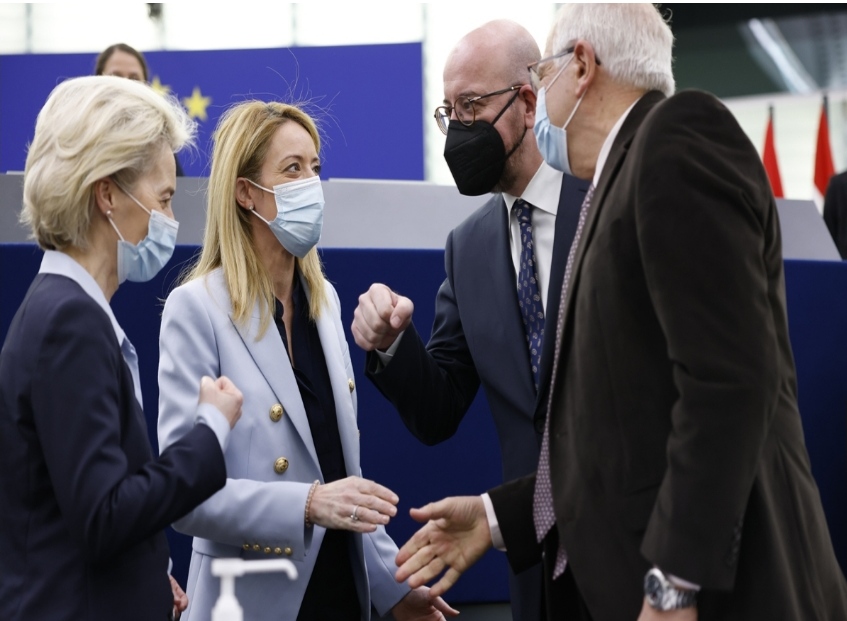EU struggles over sanctions planning Russia
Hungary rejects proposal on Russian oil embargo

European leaders arrive in Strasbourg, France on April 6, 2022 for a debate on more sanctions on Russia Ambassadors from the 27 European Union (EU) member states on Sunday examined a compromise mooted to enable them to break the deadlock on a Russian oil embargo ahead of an emergency summit in Brussels.
The bloc’s officials fear the absence of an agreement would cast a shadow over the two-day meeting starting Monday between European leaders.
Ukrainian President Volodymyr Zelensky is expected to address the gathering by video link.
The latest round of proposed sanctions by the EU has been blocked by landlocked Hungary, which has no access to seafaring oil cargo ships.
Hungary is dependent for 65 percent of its oil needs on Russian crude supplied via the Druzhba pipeline, which runs from Russia to various points in eastern and central Europe.
Budapest has rejected as inadequate a proposal to allow it two years longer than other EU states to wean itself off Russian oil.
It wants at least four years and at least 800 million euros ($860 million) in EU funds to adapt its refineries to process non-Russian crude and boost pipeline capacity to neighboring Croatia.
Slovakia and the Czech Republic, also supplied by the Druzhba pipeline, accepted exemptions of two and half years, diplomatic sources said.
The compromise solution put to national negotiators on Sunday consists in excluding the Druzhba pipeline from a future oil embargo and only imposing sanctions on oil shipped to the EU by tanker vessel, European sources said.
The Druzhba pipeline accounts for a third of all EU oil supplies from Russia. Maritime cargos account for the remaining two thirds.
The compromise was tabled by France, which currently holds the rotating EU presidency, and by the European Council, which represents the governments of the EU nations.
Oil pumped in via the Druzhba pipeline would be excluded “for the time being,” said one EU official.
The aim is to break a stalemate that has, since early May, prevented the EU from imposing a sixth round of sanctions on Moscow over its military operations in Ukraine.
The proposal envisages ending the purchases of Russian crude within six months and Russian petroleum products by the end of 2022.
It would also impose additional sanctions on Russian banks and expand the list of Russian individuals blacklisted by the bloc.
Yet EU ambassadors did not find agreement on the compromise, with one EU official saying a “difficult and complex discussion” failed to bridge disaccord.
Another EU official said the mooted compromise raised questions of fairness on the sanctions burden shouldered by member states.
An EU diplomat said it was hoped an agreement could still be reached in time for Monday’s summit, though that was far from certain.
The question of how they answer Russia is always “emotional” for certain member states and will be “one of the most sensitive issues” at the summit, the diplomat added.




